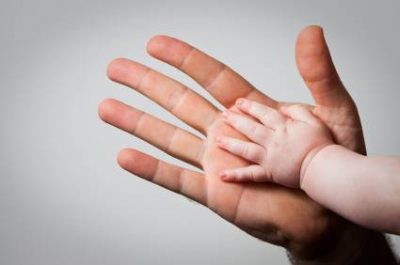Parent and Child (Ros' Blog)

Intellectually, it was an easy decision to move our daughter into a residential care home when she left College at the age of 22. Emotionally, it was a different story altogether! After twenty-two years of lifting and handling her, often with no equipment or support, I simply could not go on undertaking her physical care from day to day. Nor could I take any more sleepless nights. In my twenties I had learned to survive on very little sleep, but by the time I was approaching my fifties, the sleep deprivation was taking more of a toll (she has never slept very much, and that didn’t change as she grew older). So on one level it was an obvious choice, but that didn’t make it an uncomplicated one.
Eighteen months before she was due to leave College, I sat down and gave God a “shopping list” of what I wanted for her. It had to be a small, family-sized home – she wouldn’t cope in a large setup. I wanted her to be with other young people of her own age, who would share her interests and be good company for her. And I wanted it to be in the town where we lived, on our doorstep, not miles away, so that she could remain very much part of our family and our church. I knew I was asking the impossible. No such provision existed.
And then, guess what? God did the impossible. Just as she was leaving College, a care provider bought up a six bedroom house a few roads away from our home and turned it into a residential care home for young people. Ellen was the first to move in, followed over the next couple of years by five other young people, all of them wheelchair users with varying degrees of learning disability. The home is staffed by wonderful carers and an efficient and understanding manager. It takes me five minutes to get there. On Sundays I call on the way to church, collect Ellen, take her to church with me, then back to my house to spend the day with her sisters and me, and then back to her own home at bedtime. It’s easy to pop in during the week for a coffee with her, or to take her out to lunch.
I wasn’t looking forward to relinquishing her care to strangers. But gradually, as she settled in and I learned to relax more and accept the situation, I made a wonderful discovery. I began to be aware that I was gradually changing roles. Over the years I had unwittingly slipped more and more into the role of carer, and felt less and less like a mum. Now that process began to reverse. I stopped relating to her as a carer and felt like a real, proper mum again. When I interact with her now, it’s not usually because she has a need, but because we want to go and have some fun together. Of course there are still some things like hospital appointments which don’t fall into the category of fun, but most of my contact with her is to have her home with the family, do some girly shopping or go out to lunch. Even the boring bits can be combined with fun – tomorrow I’m taking her for a flu jab via McDonalds!
My relationship with each of my three girls is quite unique, because they are such very different characters. But I can say unhesitatingly that Ellen’s disability hasn’t made her any less close to me than her sisters. In fact we have a really distinctive relationship, as she looks to me to do things for her that she can’t do for herself, from the small things like blowing her nose to the much bigger things like buying a wheelchair adapted car.
And that got me thinking. If Ellen’s disability forms a unique and important part of my relationship with her, and is one of the things that has drawn us close as parent and child, wouldn’t God as a Father see it in the same way too? Having a disability doesn’t make you one of God’s lesser children – less important or less valued. Rather, the need to depend more on Him can be the very thing that deepens your relationship with Him, and you can be sure He holds you very close to His heart as one of His loved and treasured children. Nor is His relationship with you based on your need or your dependency, but as with Ellen and me, there’s a large place in the relationship for reciprocal affection and downright fun.
Paul wrote, “All who follow the leading of God’s Spirit are God’s own sons. Nor are you meant to relapse into the old slavish attitude of fear—you have been adopted into the very family circle of God and you can say with a full heart, “Father, my Father”. The Spirit himself endorses our inward conviction that we really are the children of God. Think what that means. If we are His children we share His treasures, and all that Christ claims as His will belong to all of us as well! Yes, if we share in His suffering we shall certainly share in His glory.” (Romans 8. 14-17, J.B. Phillips Translation)
My prayer for you is that you will know that you have the right to cry, “Father, my Father”, and that you will have the assurance of the Holy Spirit that you are part of God’s family circle, heir to all His treasures, and uniquely positioned to share in His glory as you now share in the sufferings of Christ.

